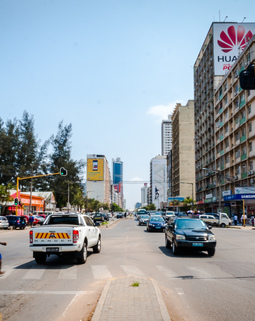In a significant move towards green energy and sustainable development, Mozambique and Tokyo are engaging in discussions to establish a partnership for the manufacturing of electric vehicle (EV) batteries. This collaboration not only promises to advance Mozambique's position in the global green energy market but also aligns with the increasing global demand for electric vehicles. As the world shifts towards cleaner energy solutions, this partnership could play a crucial role in transforming Mozambique’s economy and contributing to global sustainability goals.
The Strategic Importance of EV Battery Manufacturing
The manufacturing of EV batteries is pivotal in the global transition to electric mobility. With the demand for electric vehicles on the rise, especially in developed markets like Japan, the need for reliable and sustainable battery supplies is more critical than ever. Mozambique, with its rich deposits of key battery minerals such as graphite, is well-positioned to become a major player in this industry. Collaborating with Tokyo could help Mozambique harness its natural resources more effectively, creating a new avenue for economic growth.
The potential for Mozambique to become a hub for EV battery manufacturing is significant. By processing its own raw materials, the country can add value locally, create jobs, and reduce its dependency on exporting raw minerals. This shift from a raw material exporter to a manufacturer of finished goods would mark a major economic transformation for Mozambique, aligning with its broader development goals.
Economic and Environmental Benefits
The partnership with Tokyo presents numerous economic benefits for Mozambique. First, it would create new jobs in the manufacturing sector, which could lead to an improvement in the standard of living for many Mozambicans. The development of a domestic EV battery manufacturing industry could also attract further foreign investment, boosting the country’s GDP and fostering industrial growth.
On the environmental front, producing EV batteries locally would reduce the carbon footprint associated with transporting raw materials overseas for processing. Moreover, it aligns with global efforts to reduce greenhouse gas emissions by promoting the adoption of electric vehicles, which are less polluting than traditional internal combustion engine vehicles.
For Tokyo, this collaboration represents an opportunity to secure a stable and sustainable supply of EV batteries to support its ambitious electric vehicle targets. As Japan continues to push for a greener economy, securing partnerships with countries like Mozambique, which has abundant natural resources, is crucial for ensuring the sustainability and success of its green energy initiatives.
Challenges and Opportunities Ahead
While the prospects of this partnership are promising, there are challenges that need to be addressed. Mozambique’s infrastructure, though improving, still requires significant investment to support large-scale industrial projects. Additionally, ensuring that the benefits of this partnership are felt across all levels of Mozambican society will require careful planning and effective governance.
Another challenge is the need for skilled labor to support the manufacturing process. Mozambique will need to invest in education and training programs to develop a workforce capable of meeting the demands of this new industry. Tokyo’s expertise in technology and manufacturing could play a crucial role in this area, helping to transfer knowledge and skills to Mozambique’s labor force.
Despite these challenges, the opportunities presented by this partnership are immense. With the right strategies in place, Mozambique can become a key player in the global EV battery market, driving economic growth while contributing to global environmental sustainability.
Conclusion
The ongoing discussions between Mozambique and Tokyo to establish an EV battery manufacturing partnership could mark a transformative period for Mozambique’s economy. By leveraging its natural resources and Tokyo’s technological expertise, Mozambique has the potential to emerge as a significant contributor to the global green energy movement. This partnership not only promises economic growth but also aligns with global efforts to combat climate change through sustainable practices.




